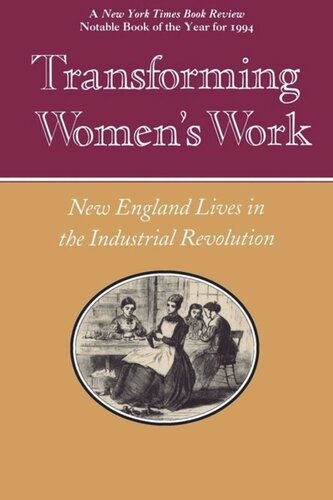

Most ebook files are in PDF format, so you can easily read them using various software such as Foxit Reader or directly on the Google Chrome browser.
Some ebook files are released by publishers in other formats such as .awz, .mobi, .epub, .fb2, etc. You may need to install specific software to read these formats on mobile/PC, such as Calibre.
Please read the tutorial at this link: https://ebookbell.com/faq
We offer FREE conversion to the popular formats you request; however, this may take some time. Therefore, right after payment, please email us, and we will try to provide the service as quickly as possible.
For some exceptional file formats or broken links (if any), please refrain from opening any disputes. Instead, email us first, and we will try to assist within a maximum of 6 hours.
EbookBell Team

4.1
100 reviews"I am not living upon my friends or doing housework for my board but am a factory girl," asserted Anna Mason in the early 1850s. Although many young women who worked in the textile mills found that the industrial revolution brought greater independence to their lives, most working women in nineteenth-century New England did not, according to Thomas Dublin. Sketching engaging portraits of women's experience in cottage industries, factories, domestic service, and village schools, Dublin demonstrates that the autonomy of working women actually diminished as growing numbers lived with their families and contributed their earnings to the household. From diaries, letters, account books, and censuses, Dublin reconstructs employment patterns across the century as he shows how wage work increasingly came to serve the needs of families, rather than of individual women. He first examines the case of rural women engaged in the cottage industries of weaving and palm-leaf hatmaking between 1820 and 1850. Next, he compares the employment experiences of women in the textile mills of Lowell and the shoe factories of Lynn. Following a discussion of Boston working women in the middle decades of the century-particularly domestic servants and garment workers-Dublin turns his attention to the lives of women teachers in three New Hampshire towns.